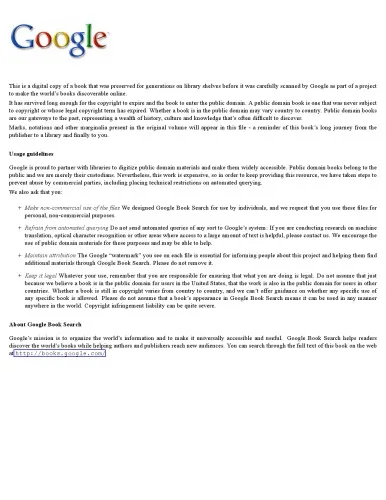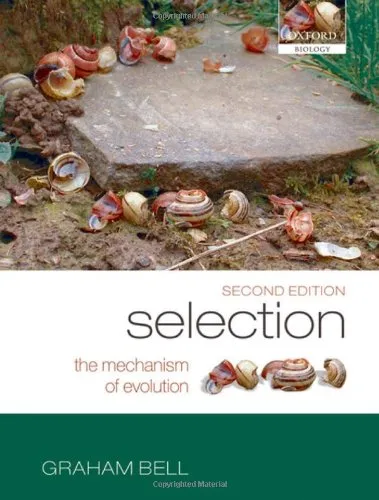The origin of civilisation and the primitive condition of man : Mental and social condition of savages
4.3
Reviews from our users

You Can Ask your questions from this book's AI after Login
Each download or ask from book AI costs 2 points. To earn more free points, please visit the Points Guide Page and complete some valuable actions.Related Refrences:
Introduction to 'The Origin of Civilisation and the Primitive Condition of Man'
'The Origin of Civilisation and the Primitive Condition of Man: Mental and Social Condition of Savages' by John Lubbock offers a profound exploration into the early development of human society and the mental frameworks of primitive cultures. Written during the late 19th century, this pioneering work delves into the evolutionary aspects of culture and civilization, examining how human societies emerge and evolve over time. As one of the early comprehensive attempts to understand the social and psychological condition of what were then referred to as "savages," this book provides insight into the ethnocentric views prevailing at the time, while also offering groundbreaking analysis that has influenced anthropological and sociological thought for generations.
Detailed Summary of the Book
The book provides a systematic look at various stages of societal development from a cultural and anthropological perspective. John Lubbock, a distinguished scholar, embarks on an investigation into the customs, beliefs, and practices of various indigenous groups, whom he regarded as representing earlier forms of human society. Understanding their art, religion, laws, and everyday lifestyle, Lubbock attempts to draw parallels between these societies and what he perceives as more 'advanced' civilizations.
Lubbock introduces the notion that the "primitive" condition of man is not static or unchangeable but rather a stage in a long progression toward complex societal structures. He compiles data and anecdotes from explorers, missionaries, and historians, gradually constructing a narrative that examines how these societies adhere to and diverge from known historical norms. Throughout the book, Lubbock endeavors to dismantle several myths regarding primitive societies, emphasizing instead their ingenuity, adaptation, and the variety in their cultural expressions.
Key Takeaways
- Lubbock’s work symbolizes an early attempt to apply scientific reasoning to the study of human society, thus influencing subsequent studies in anthropology and sociology.
- The book advocates for understanding primitive societies not merely as precursors to so-called civilized societies but as entities worth studying in their own complexity and merit.
- Despite using terminologies and perspectives that are considered outdated or pejorative today, Lubbock’s observations encourage discussions about cultural diversity, adaptation, and evolution.
Famous Quotes from the Book
"The savage is not the natural man: ... he is the artificial product of an arrested civilization."
"We underrate the wisdom of our ancestors in saying that ignorance is bliss."
Why This Book Matters
John Lubbock’s work remains significant for its early contributions to the understanding of cultural evolution and the dynamics of societal development. While modern anthropology has evolved past some of Lubbock's concepts and terminologies, his method of meticulously cataloging and analyzing the customs and beliefs of diverse cultures laid important groundwork for future scholarly research. The book pushes readers to grasp the complexities of societal changes and the value of diverse cultural practices, igniting discussions on progress, cultural heritage, and the definition of civilization itself.
Moreover, the book serves as a historical artifact that echoes the 19th-century European mindset, offering contemporary readers a reflective lens on the progression of scientific and cultural thought. Scholars, students, and anyone interested in the history of human societies and the evolution of cultural anthropology will find Lubbock’s engaging narrative both enlightening and challenging in its reflection of its own time.
Free Direct Download
You Can Download this book after Login
Accessing books through legal platforms and public libraries not only supports the rights of authors and publishers but also contributes to the sustainability of reading culture. Before downloading, please take a moment to consider these options.
Find this book on other platforms:
WorldCat helps you find books in libraries worldwide.
See ratings, reviews, and discussions on Goodreads.
Find and buy rare or used books on AbeBooks.













